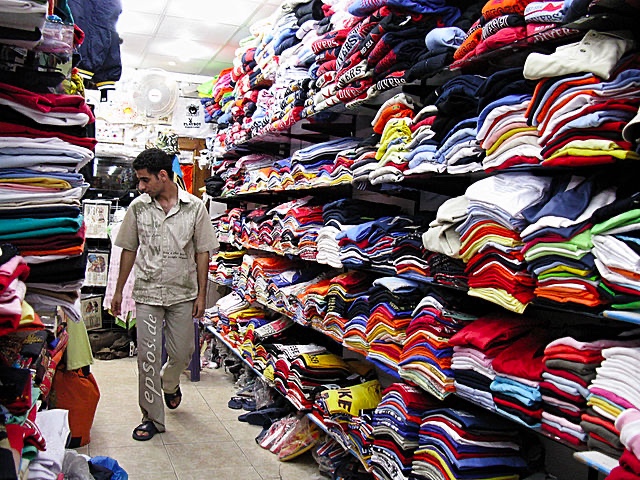About A Journey Every Ambitious wholesale Businessman Takes
Apr 30,2021
Table of Contents:
Imagine being able to devote more time and energy to product creation and innovation, brand enhancement, and operational efficiency rather than finding buyers and thinking about revenue!

This blog post was written with one goal in mind: to make you become the kind of wholesalers you aim to be. There is a wealth of content available on the internet in the form of films, blogs, lectures, and seminars. The most content overlooks the fundamentals. This blog article gathers information for both wholesale starters and those experienced. It's a must read for anyone who wants to upscale their business in 2021!
The Definition of Wholesale

A wholesaler is a corporation or person who buys large quantities of goods from manufacturers, traders, other suppliers, and vendors. Wholesalers keep them in warehouses and market them to companies and traders (shops and stores).
Wholesalers are dealer intermediaries that market to supermarkets, other traders, financial, manufacturing, and institutional customers. They mostly purchase for resale or commercial purposes.
The wholesaler's market strategy revolves around acting as an agent – a go-between. They serve as a link between a product's seller and other companies interested in selling it. Wholesalers concentrate on B2B rather than B2C. B2B stands for business-to-business, which means that one firm sells to another. B2C is the abbreviation for business-to-consumer. Retailers, for example, concentrate on the B2C market.
Why Wholesale?

Here we define wholesale as a business model, which is different from dropshipping.
From a socio-economic perspective, wholesalers generate utility by stockpiling commodities that retailers will use at a lower cost than direct exchange. In this way, the flow of free trading in the market is easily achieved. As a result, the efficient operation of wholesale linkages directly leads to a society's economic well-being.
From an entrepreneurial perspective, buying wholesale online gives space for more flexible shipping and bulk ordering. Because of this, there is a lower average price for goods, as well as shipping. As a wholesaler, you will be able to negotiate with suppliers, ask for samples and customize products as you like. Meanwhile, some suppliers (e.g. FondMart) will put wholesalers first and go through strict quality control for products sent out. This privilege allows you to create a more tailored shopping experience for your clients and attract them to come back to you.
Steps to Facilitate a Wholesale Deal

Step 1: Source Wholesale Products
The trick to operating a profitable e-commerce store is finding the best inventory to draw the most customers. You must be willing to market the products competitively while retaining strong profit margins in addition to determining what your consumers want.
You have the choice of purchasing inventory for your online shop from retailers, dealers, or wholesale vendors, and each of these commodity outlets provides its own set of advantages and disadvantages. However, several new sellers discover that wholesale vendors will make getting started faster and more accessible.
Step 2: Negotiate With Your Suppliers
Your job isn't done just because you think you've found the best supplier for your business. You should ask them for feedback and conduct some extra analysis online and see whether there are any suggestions or concerns from other company owners who have partnered with them and ensure you are making the right choice.
Small business sites on the internet are also a popular way to receive tips from other online store operators. You will ask questions and get answers from a variety of companies from all around the world in these online forums.
Often, make sure you pose a lot of questions to ensure you understand precisely what you're receiving. Inquire about order delivery times, refund practises, and bulk discounts, for example. Order samples to see just what the clients can get and to guarantee that it meets your quality expectations.
Before you sign the deal, don't be scared to haggle on the conditions. If the minimum order quantity, price conditions, and shipping plan do not meet the needs, they may all be addressed.
Step 3: Developing a plan for bulk pricing
Pricing strategies are one of, if not the most, crucial components to creating a successful wholesale business. When selling direct to customers on your own website or in your own retail store, you get to keep whatever profit margin you set for yourself.
With wholesale, businesses typically give retailers a 50% discount off their regular retail price. The steep discount is to allow retailers to wholesale your product to their customers, while still retaining some profit margin as well.
Here is a tutorial of how to set your price easily in your shops on FondMart.
FondMart Blog Posts
As the wholesale seller, you get to make the guidelines that your retailers must follow, but keeping a reasonable price match is critical to your retailers' success. If your retailers make a profit selling your stuff, they'll keep coming back and placing greater orders.
Step 4: Acceptable Payment Terms for Bulk Orders
The payment conditions expected from your distribution partners are one way wholesale varies from direct-to-consumer purchases. In contrast to a normal transaction, whenever a vendor buys a significant quantity of your goods, they will request payment conditions known as "Net X": an agreement that the net payment is due in full over a certain amount of days (e.g. Net 30 for payment within 30 days).
If a merchant requests these desired payment conditions, it implies they wish to compensate you as a seller within a certain amount of days of accepting their order. It's risky to ship a big order to a store before they've paid you, particularly for small companies. This is why it is commonly recommended that you obtain references and conduct due diligence prior to committing to certain conditions.
Step 5: Find a Wholesale Customer
Method #1: Take a Look at What You Do Own.
Looking within your own consumer base is one of the simplest and most underutilised tools for seeking potential wholesale customers. Here's how to narrow down the quest and select the right candidates for being a wholesale customer:
Export the whole client list (try Order/Customer CSV Export in WooCommerce).
Make a distinction between corporate and consumer clients. This is generally as simple as searching for someone that provided a business name. To narrow it down even further, search at consumers that have placed several orders (repeat orders).
Have contact with them to a one-on-one basis. Ideally, you should be able to call them and speak with them (if you have their contact information or can quickly locate it), but because clients are required to have an email address, you should be able to email them at the very least. However, the phone is much more effective!
Method #2: PPC(Advertise Online and Pay Per Click)
PPC is used successfully by many e-commerce stores to lure loyal buyers, so why not try it for wholesale customers as well? The required expertise, experience, and analysis may also be applied to campaigns for wholesale customers.
With a well-planned wholesale marketing strategy, you will target keywords that are related to your niche. In Google Adwords, the broad match identifier comes in handy for this (the most popular PPC platform). You may also consider cross-targeting a Facebook campaign with the keywords you're looking for for large company groups/pages or sector community pages to see how you can find people who manage the kinds of companies you want to draw. If you're trying to take the PPC way, make sure you have a great landing page for new wholesale buyers before they arrive at your website.
Give them a brief rundown on why they should become a wholesale customer with you, including a list of what they get and why it's relevant. Give them as much information as you want, then send them the wholesale registration form.
Method #3: Cold calling
It may be difficult to implement a skilful cold calling strategy. The key is to target your efforts so that you only contact those who are most likely to be involved.
Make a map of the region you want to reach. You might extend this later, but starting locally is usually better than going national or even countrywide right away. Consider focusing your efforts on citizens in your region/state, or even just your neighbourhood. You'll be shocked by how many businesses remain on the chart!
Narrow the goal even further by calculating the size/revenue of the company and then including individuals on the roster who fall under that range.
There are a few other methods for contacting the correct person: Request advice from lower-level workers, however don't necessarily request to talk with them; just get their name right now. Call during the hours of 8 and 9 a.m. or after 5 p.m. to bypass the secretaries and speak directly with the key persons. If you ever happen to run into a secretary or administrative staff member, consider requesting a transfer to the individual you need in a familiar voice: “Hi Emma, could you kindly send me through to Caser?” It's just about a purchase...” This would probably carry you through the majority of the time
There are several books about how to cold call correctly. For example, Tim Ferris' book 4 Hour Work Week contains one of the strongest quick guides. There is a great chapter in it on how to handle cold calling that is directed for newbies just getting started.
One more bit of cold-contact guidance is don't text! Pick up the phone and dial someone's number. Email isn't nearly as successful.
Find What Works and Put That Into Practise.
To discover new leads, you might begin with a spray-and-pray approach, but once you find anything that fits, stay with it and operate on it aggressively. Don't be afraid to engage in conversation; get out there. You will definitely reach to a breakthrough one day!
Wrap Up

Direct-to-consumer products will now launch quickly and expand online thanks to the growth of ecommerce. As a consequence, many people dismissed wholesale as a passing supermarket fad. However, through rethinking the way wholesale operates, a new generation of wholesale companies are booming in the age of ecommerce.
Wholesale companies are being started by both direct-to-consumer brands searching for alternative distribution platforms and developers looking to save money on marketing. You will start opening your company up to new revenue-generating collaborations and see your label prosper between other complimentary products with the right pricing policy and proper setup.
Grasp this new business trend and start earning with FondMart!
Subscribe for latest update
We will keep you updated with FondMart's style news.
Popular Blogs





